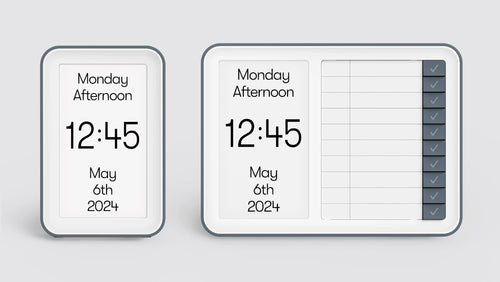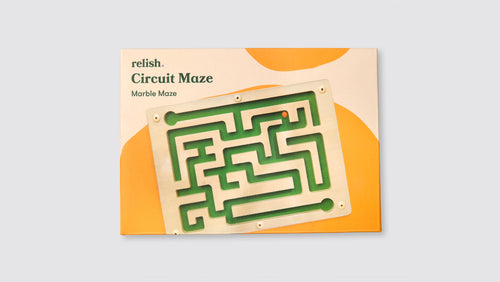For people living with dementia, communication can become challenging. And communication difficulties get worse over time as the condition progresses.
Luckily, you can use several communication tools when interacting with a loved one with dementia that will help you connect more easily. Excellent communication may help you and your loved one maintain a better quality of life and a stronger sense of togetherness.
Communication difficulties for those with dementia
Communicating with people with dementia is undoubtedly possible. The difficulty lies in how communication changes over time as dementia progresses. A person with dementia will likely experience the following communication problems:
- Difficulty expressing themselves through verbal communication.
- Sight or hearing problems.
- Relying on others to initiate conversations.
- Relying more on facial expressions and body language to communicate.
- Difficulty organising their words into sentences.
- Describing objects instead of calling them by their name.
In the early stages of dementia, a person with dementia may find communication much easier. But they may not be able to speak at all in the later stages.
You might also see a person with dementia become more frustrated as their communication ability declines. It's best to remain patient and express understanding to help ease their mind.
Learn more about the causes of agitation for a person with dementia here.
Before you communicate
Communicating with people with dementia takes preparation. You don't want to dive right into it because it might make things more difficult. The key to understanding the importance of effective communication with an individual with dementia is preparation.
Before you communicate, here are some things to do:
Make eye contact with the person. Remove distractions like turning the television down. Be patient and remain calm so everyone can communicate better. Approach them from the front and identify yourself first before speaking.
Also, prepare to use body language and physical contact.
Listening
Dementia communication has a lot to do with active listening. It's best to take the time to listen to a person with dementia express their thoughts, feelings and needs.
The other ways you use listening as a communication tool are:
Ensure the person has time to respond and try your best not to interrupt them. Ask what method of communication is most comfortable for them, i.e., face-to-face, email or phone call conversations. Listen and try to find the meaning of what the person is trying to say and repeat it out loud to them for assurance. Give your full attention while they're speaking to you. Encourage eye contact while communicating.
Communication with a person is always a two-way process. That's why listening is vital.

8 dementia communication strategies to better communicate with a loved one
Please find below eight recommended strategies for better communication for those with dementia.
1. Keep it simple
With dementia, communication should be kept simple. For example, you'll want to use short sentences. This will allow your loved one to more easily understand what you're saying to them and then better engage in the conversation.
Also, to avoid overwhelming your loved one, offer simple choices instead of too many options, i.e. ‘Yes or no’ or ‘this or that.’ Keep steps short and clear if you need to provide step-by-step directions.
2. Go slow
Give people with dementia time to respond and think about what to say. They may need some time to find the right word, for example. Additionally, you'll want to speak slowly. Ask one question at a time.
When giving directions, take it one small step at a time. That way, you can easily step in if your loved one forgets a step or does something wrong.
The goal is to exhibit patience as much as possible. As a result, the person with dementia will remain calm and not rushed.
3. Use nonverbal communication
Visual cues are essential. Gestures, body language, and facial expressions may help better deliver your message.
When giving directions, demonstrate the action. Your loved one may find it easier to model your behaviour.

4. Communicate in writing
The written word might also help. Offer a person with dementia a notepad to write notes or draw pictures to communicate their needs. You may also write them messages throughout the home to help guide them. For example, place a note on the bathroom mirror reminding them to brush their teeth.
5. Lead with dignity and respect
A person with dementia can expect to go through cognitive decline. But you don't want to treat them like children. They have an array of life experiences that define who they are instead of their condition. So, you want to maintain their identity and their dignity by communicating with respect.
Even though you talk slower, it doesn't mean you need to talk down to someone with dementia. Instead, you can reassure them that dementia doesn't make them less of a person.
6. Know it is okay to laugh
A great way to ease frustration with communication is to laugh. It can help strengthen your bond and lighten the mood. Also, it could lessen the disappointment a loved one may feel when communication becomes challenging.
You want to be mindful of not coming across as though you're making fun of a person with dementia. In other words, make it evident that you're laughing with your loved one, not at them.
7. Avoid confrontation
A critical communication tool for dementia is avoiding confrontation. Living with dementia already makes someone more prone to anger and irritability. Your loved one relies on you for support. So, it's best not to fuel their frustrations.
Avoid criticising or correcting a person with dementia if they miscommunicate. You'll want to listen instead and try to find the true meaning in what they're saying.
Staying positive and optimistic is a great way to avoid confrontation. The more positive you are, the more confident and safe your loved one may feel. Instead of responding with frustration, try to use affection and reassurance and speak with a positive tone of voice.
8. Don't give up
The first few times you try communicating, something else may work better. But don't give up. You can effectively communicate with a loved one. But, again, it takes patience.
Keeping people active and engaged in the conversation can positively impact a person with dementia, so you never want to stop trying to communicate with them. Also, that's true no matter what stage of dementia they’re experiencing.
If you don't know what to say, just being there and showing support helps. Patting or holding your loved one's hand may grow your bond and reassure them that everything will be okay.
You may like to listen to our communication podcast, which provides more excellent advice on making it easier to communicate with each other.
Commonly asked questions about dementia and communication
1. What should you not do when communicating with dementia?
Some things to avoid when communicating with someone with dementia are:
- Avoid getting into arguments. This will fuel your loved one’s agitation.
- Don’t remind your loved one of things they have forgotten. It can be particularly distressing for them.
- Don’t take it personally if they don’t remember important things, such as names, dates or special memories.
- Don’t question the accuracy of their memory. Again this can be very distressing.
- Avoid interrupting. Give your loved one a chance to express themselves properly.
- Don’t talk to the person as if they were a child. Be respectful and patient.
- Avoid telling people what to do. Instead of “You need to brush your teeth now, " frame it more positively. I’m going to brush my teeth. Do you want to brush yours too?”
2. What do people with dementia like to talk about?
People with dementia, like everyone, like to talk about their hobbies and interests. They may also enjoy talking about their loved ones and things they enjoy, such as a favourite TV show or activity.
People with dementia can often still recall long-term memories, although more recent memory is impaired. So, reminiscing about happy memories from the past is a good way to have a meaningful conversation. And talking about past successes and accomplishments can boost confidence and self-esteem.
3. How to talk with someone with dementia on the phone?
Talking to someone with dementia on the phone can be challenging as you do not have visual cues, such as facial expressions and body language. Try to speak slowly and clearly, and give the person plenty of time to respond, as they may be trying to find the right words. Stick to simple questions, rather than open-ended questions, to make the conversation as easy to understand as possible.
Key Takeaway
With dementia, communication gradually becomes more challenging. It may help to learn what to expect as your loved one progresses through dementia and Alzheimer's. The main things to remember are offering plenty of positive encouragement when communicating a message and remaining patient throughout difficulties.
Engage with your loved one meaningfully with Relish
We offer a wide range of dementia-friendly products to help ease the mind of a loved one or family member living with dementia. For example, puzzles, art kits, and other activities might help when a loved one becomes frustrated or needs a break.


















